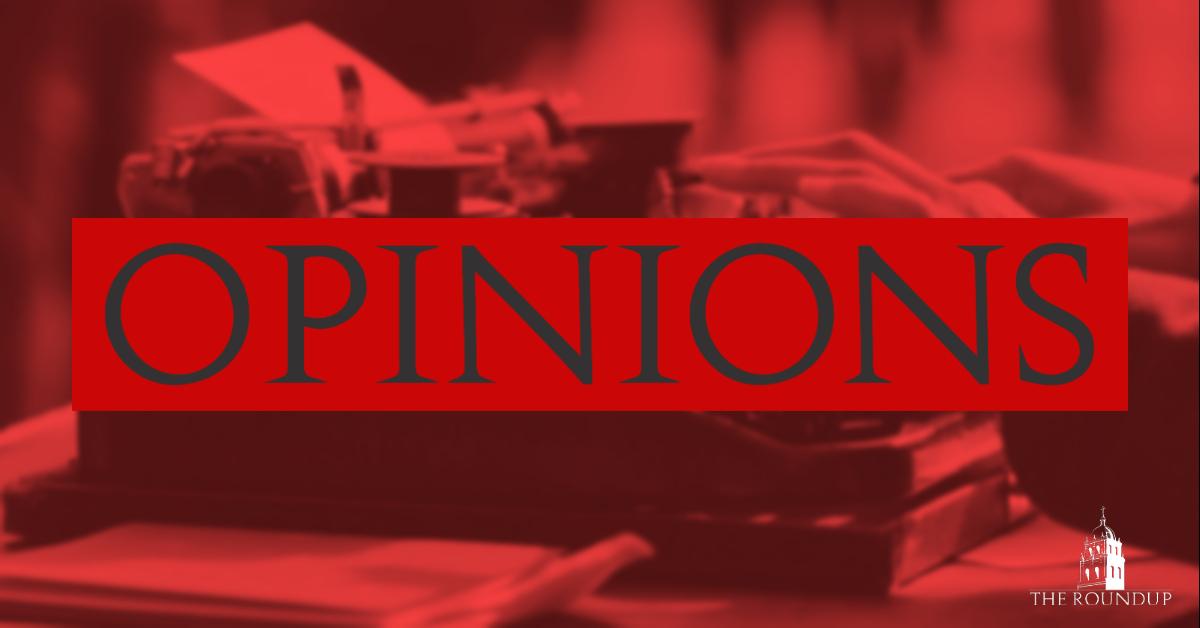By Reid Shniderman ’20
THE ROUNDUP
We’ve probably all been there. In the midst of a classroom discussion, that awkward moment arises; politics enters the conversation unexpectedly. Is this an opportunity for growth or a distraction?
To help answer this question, Brophy Principal Mr. Bob Ryan was interviewed to explore his perspectives, as well as an anonymous Brophy student who has experienced this situation first-hand.
Mr. Ryan was asked for his thoughts on the issue. He believes that political opinions and discussions have a place in the classroom, and that he expects there to be conversations about world events and what’s happening today.
“Education happens in dialogue with the world,” Mr. Ryan said. “It doesn’t happen in a vacuum.”
Mr. Ryan believes that there is a balance between non-opinionated and all-opinionated teachers. He also believes there is a line that shouldn’t be crossed, and a balance that should be sought.
One way to achieve this balance involves introducing various alternative opinions rather than solely that of the teacher’s, particularly when their opinion is more extreme. This raises some important questions. If they present their personal political opinion, should the teacher be obligated to present alternatives to that opinion? And are teachers obligated to create an environment that is conducive to at least hearing alternative perspectives from the students?
A student interviewed for this article, whose name has been anonymized, shared that he has been taught by a few of these instructors who aren’t so politically neutral. He says that there are some teachers of his who have presented what they believe in, and then deemed their political ideologies to be fact.
“I don’t necessarily have to agree with what they say,” he said. “And most of the time they aren’t angry and are open to discussion. Sometimes they try to make me see a different picture, but that’s not really a bad thing.”
There have been a few teachers that ask for students to be “open to growth” to the views of the instructor. When alternatives to the teacher’s political opinions are not presented or encouraged, some students have said they feel they’re being accused of not being “open to growth” or open-minded. Does this mean that being “open to growth” is only about believing the teacher’s opinions? The anonymous student doesn’t feel it does.
“I think that if you have your own set of beliefs, then you can stick with those,” he said. “You shouldn’t just completely give up on your beliefs; you should adapt them and change them based on what you learned and what you believe. If someone else comes up to you and says ‘This is what I believe.’ you shouldn’t say ‘Okay, that’s what I believe now, too.’ You need to back that up with how you feel about that certain topic. I think that’s more open to growth than being like a sheep that’s herded to follow something you don’t believe in.”
So what happens when a student perceives that the line has been crossed and there is no balance in the classroom?
“In general, it’s certainly never appropriate for teachers to tell their students how to think or what to think,” Mr. Ryan explains. “It’s appropriate for them to know, and for students to know, that the teachers represent the Catholic understanding on a given topic. There can sometimes be conflation and confusion in students when a teacher presents something and says ‘Hey, this how we feel about a given topic.’ Sometimes students can interpret that as the teacher inflicting his or her opinion on them.”
Perhaps it can help those students who feel that the line has been crossed in the classroom to consider that the learning only begins in the classroom. Furthermore, their opportunity to seek the alternatives continues as they depart from the classroom and the campus. In this way, the opinionated teacher, whether purposefully or not, has challenged them to continue thinking, and in that way growing.
In many cases, political discussions are healthy ways to express different opinions.
However, people become concerned when someone starts influencing people to have that same opinion, especially someone with authority. But by seeing the bigger picture, and realizing that classroom discussions do not exist in a vacuum, we can see that what may have appeared to be a distraction, is indeed an opportunity for growth.























